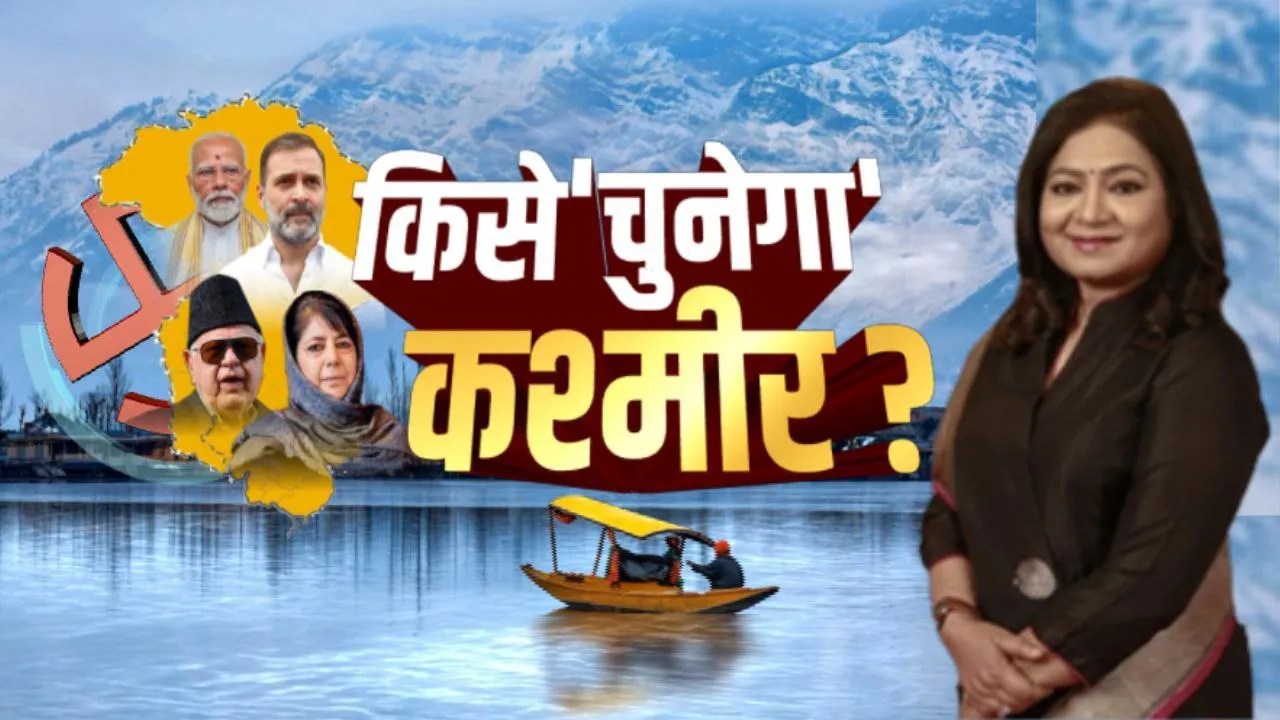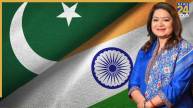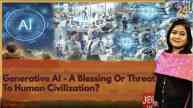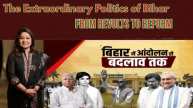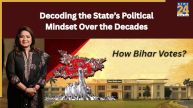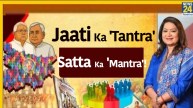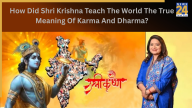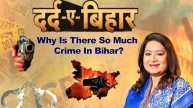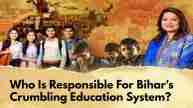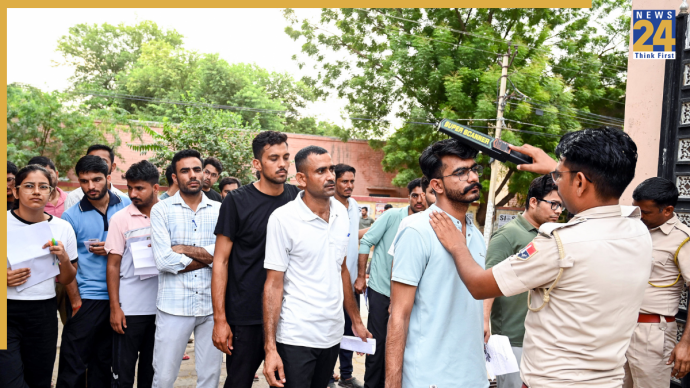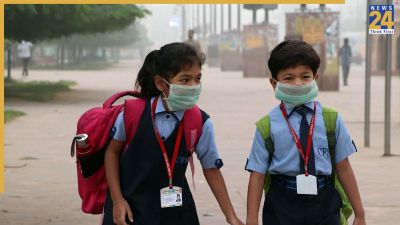By June this year, over 1.5 million tourists visited what we know as the paradise on earth, the Kashmir Valley, including 26,000 foreign tourists. Conditions in Kashmir are rapidly changing. Stone-pelting incidents are a thing of the past. The sporadic strikes that once brought life to a halt in the valley have ceased. The hands that once hurled stones at the army and paramilitary personnel are now busy transforming the picture of Kashmir. People are engaged in construction projects, building their future and the new Kashmir of their dreams. However, terrorist attacks have not completely stopped, who have been continuously plotting to disrupt the peace in Kashmir.
Now, the people of Jammu and Kashmir are also eagerly waiting for the assembly elections so they can choose their government with their votes. The last assembly elections in Jammu and Kashmir were held in 2014. Since then, there have been various political experiments. The previous assembly election was held when the state had special status.
There was a system of two flags, two constitutions, and two heads of state. Jammu and Kashmir had the status of a full-fledged state. Now the situation has completely changed. Everyone, from the public to the politicians, is preparing for the assembly elections. Today, we will try to understand what lies at the heart of Jammu and Kashmir. Whether any winds of change have been blowing there since the abrogation of Article 370? What indications did the people of Jammu and Kashmir give in the 2024 Lok Sabha elections?
How much strength does each party have? How much potential does the BJP see for itself? Who can help the BJP bloom in Jammu and Kashmir? Has Farooq Abdullah’s National Conference strengthened or weakened politically? Even though Congress was completely silent during the Lok Sabha elections this year in Jammu and Kashmir, why are they optimistic about the assembly elections? How much strength remains in Mehbooba Mufti’s PDP? What kind of alliance scripts might be prepared before or after the elections? Today, we will try to find answers to all these questions.
Long-awaited elections
The people of Jammu and Kashmir are eagerly waiting for the assembly elections. It is considered certain that elections for the 90 assembly seats in Jammu and Kashmir will be held in September-October. The deadline for publishing the final voter list is August 20. The Election Commission is continuously holding meetings with state officials regarding preparations. Speculations are that the election dates in Jammu and Kashmir could be announced any day after August 19, once the Amarnath Yatra concludes.
BJP’s expectations from Jammu and Kashmir
All the parties in the political arena are preparing at a breakneck speed. Prime Minister Narendra Modi has already stated from the land of Srinagar that Jammu and Kashmir will be given back its full state status after the assembly elections. The BJP has high hopes for Jammu and Kashmir. Over the past five years, efforts have been made to change the atmosphere in Jammu and Kashmir. The place once echoed with the sounds of gunfire and smelled of gunpowder. Today, Jammu and Kashmir is becoming a prime business investment destination. Construction is in full swing in most parts of the state. Bridges are being built amidst the mountains, malls are being constructed, factories are being set up, and the sounds of various kinds of music can be heard. Before discussing politics, it is essential to understand the changing mood of Kashmir.
Jammu and Kashmir is on a path where it is estimated that the state’s economy could see investments exceeding ₹1.23 lakh crore. The entry of large companies in Jammu and Kashmir in the coming times is expected to create more than 450,000 jobs. The Modi government has been working on multiple fronts for several years to change the minds of the people of Jammu and Kashmir. Instead of a bureaucrat, a seasoned politician has been appointed as the Lieutenant Governor.
BJP may field candidates on all 90 seats
This will continue to engage with civil society through development work and communication while maintaining strict military and paramilitary operations against terrorists. In this year’s Lok Sabha elections, BJP emerged as the largest party in Jammu and Kashmir with 24.36% of the vote, but it won only 2 out of the 5 Lok Sabha seats in the state. As a result, BJP has intensified its efforts to strengthen its political presence in Jammu and Kashmir. It is believed that BJP will field candidates for all 90 seats in the state, but Prime Minister Modi will remain the main face. Like in Madhya Pradesh, Chhattisgarh, and Rajasthan, BJP will not project a specific candidate for the Chief Minister’s position in Jammu and Kashmir. It is expected that the major theme in BJP leaders’ speeches during the campaign will be the return of PoK (Pakistan-occupied Kashmir) and the promise of a wave of development that will transform the lives of every citizen in the state.
Strategic Challenges and Opportunities
BJP’s strategists are well aware of the sentiments brewing among the people of the valley. They understand the mindset with which the Muslim community in the valley will cast their votes. Therefore, BJP might attempt to change the voting equations in the valley by allying with smaller parties that have some influence, such as Ghulam Nabi Azad’s Democratic Progressive Azad Party, Altaf Bukhari’s APNI Party, and Sajjad Lone’s People’s Conference.
The Battle for Every Vote
Although these smaller parties may not significantly impact the elections on their own, they can play a crucial role in splitting votes. BJP’s leaders know how intense the battle for every vote in Jammu and Kashmir will be. The second largest party in the region, based on the Lok Sabha votes, is Farooq Abdullah’s National Conference, which won 2 out of the 5 seats with over 22% of the vote. It is believed that the National Conference has strengthened its political position in recent years. Farooq Abdullah has consistently worked to strengthen the party while advising Pakistan that friendship with India would benefit both countries, while enmity would harm both. Therefore, it is important to understand why Farooq Abdullah sees a favorable environment for his party.
Special Status: A Thing of the Past
There was a time when it was said that the view of Srinagar from Delhi’s telescope was not accurate, and vice versa. This difference in perspective was largely due to the special status Jammu and Kashmir had under Article 370, which is now history. Now, electoral politics is examined through the lenses of both Delhi and Srinagar. The National Conference, which dreams of returning to power in Jammu and Kashmir, is part of the INDIA coalition in Delhi, with Congress as the largest party. Despite Congress not winning any seats in the 2024 Lok Sabha elections in Jammu and Kashmir, its vote share increased by about 10%, boosting its confidence for the assembly elections. The question now is whether the alliance between Congress and the National Conference will continue during the Jammu and Kashmir assembly elections. What strategy will Congress adopt in Jammu and Kashmir? Who will be the face of the party? These questions remain intriguing.
Two Possible Scenarios
One scenario is that Congress and the National Conference will contest the elections together, similar to the SP-Congress alliance in UP, benefiting both parties. In this case, the National Conference might field candidates in most valley seats, while Congress will contest in Jammu. The other scenario is that both parties will contest separately and consider forming an alliance post-elections.
PDP’s Waning Influence
Another major player in Jammu and Kashmir’s political landscape is the PDP, which previously formed a government in alliance with BJP. Political analysts believe that PDP, led by Mehbooba Mufti, has significantly weakened over the past few years. Many of its key leaders have left, with some joining Altaf Bukhari’s party and others aligning with Sajjad Lone’s People’s Conference. Mehbooba Mufti finds herself in a difficult position. In the 2014 assembly elections, PDP secured 22.7% of the vote, winning 28 seats. However, the situation has drastically changed since then.
Challenges for the BJP
From Delhi’s perspective, Mehbooba Mufti is also under the umbrella of the INDIA coalition, which includes Congress, National Conference, and PDP. However, it seems unlikely that Farooq Abdullah and Mehbooba Mufti will stand together in the Jammu and Kashmir elections. Will Mehbooba Mufti want to form an alliance with Congress? If she does, will Congress be willing to ally with her? How Mehbooba Mufti will proceed remains to be seen. BJP is dreaming of a resounding victory in Jammu and Kashmir, but it’s strategists know that the path is not going to be easy. Politics in the region is highly complex. The people of Jammu and Kashmir have closely observed the actions and character of political parties and leaders over the past decade. They have experienced a lot, and now the entire nation, along with the world, is waiting to see how the people of Jammu and Kashmir will use their votes to shape their future.

